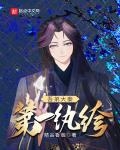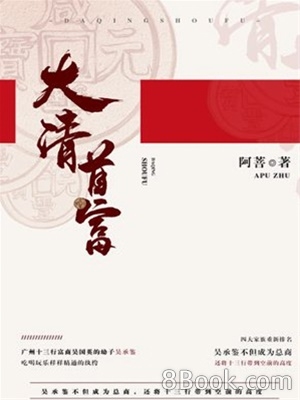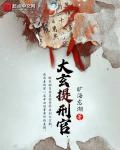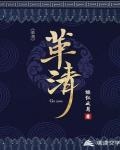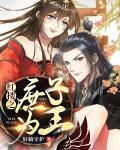Volume 4 Chapter VII Debt
Moreover, due to the limitation of productivity, winter has always been a forbidden period for agricultural production. Once agricultural production cannot be carried out in an agricultural society, the countryside will inevitably appear desolate and bleak. However, relatively speaking, in cities and villages, the slack season is suitable for holding large-scale gatherings that cannot be held on weekdays, and then carrying out corresponding political and religious activities.
A heavy snow came unexpectedly , and then quickly cleared up. Regardless of the fact that Qin Hui, Hong Ya and others on the north bank of the Yellow River were determined to fight an indomitable battle against fate for the future of themselves and their families, almost at the same time, the cities and villages in the Zhao Song territory on the south bank of the Yellow River gradually became lively.
Among them, the one who fired the first gunpowder shell of winter was none other than the official of Zhao Song... In early November, after announcing that last year's national debt had been fully repaid, this official once again started selling the so-called "winter special national debt" in the capital.
Regarding this matter, the court bulletin gave a detailed and detailed explanation... According to what was said in the court bulletin, this debt was still a legitimate national debt signed by the government, and this time the detailed household registration information of the purchaser, such as the head of household and family composition, needed to be entered into the Ministry of Household Affairs, and it was not allowed to be sold exclusively, but could only be exchanged with the Ministry of Household Affairs on a family basis.
As for the purpose of this national debt, it was clearly stated that it would be used for winter relief, annual festival activities for garrisons and city communities, Imperial College meetings, and other daily winter affairs.
The official report even stated the reason for this "special national debt" without any concealment. First, it was the impact of the Yaoshan War last year, which cost a lot of money and rewards. For this reason, the various routes of Bashu advanced one year's financial tax. Therefore, after the Yaoshan War, Bashu could only pay half of the tax within two years; second, it was the Dongting Lake Rebellion that caused a financial gap in the Jingxiang area; third, after the comprehensive reorganization of the troops, there was an additional expense for the resettlement of the laid-off troops.
Therefore, by the end of the year, there was a gap of about two million strings of cash.
After discussion among the ministers, the government promised to be more lenient and hereby issue a total of 3 million strings of cash for a period of half a year or a year, which would be regarded as a national debt with an annual interest rate of 3%.
Among them, 900,000 strings of cash were the government's own share, which was purchased and sold on behalf of the emperor by the clan leader Zhao Shiren, and the outer relatives Pan and Wu. The remaining 2.1 million strings of cash, all in denominations of 1,000 strings and 2,000 strings, were still signed by the government in person and directly supervised and recorded by the Ministry of Revenue. They were then sold publicly by the Ministry of Internal Affairs at the leftmost gate of Xuande Building for 30 days, with a daily quota of 70,000 strings.
Back to the topic, to be honest, this time the national debt is still a passive and helpless move, because there is indeed a fiscal deficit again, and the size of this deficit has made Emperor Zhao and several of the gentlemen have some doubts and concerns.
This is also reflected in some details of this national debt.
For example, the name of the so-called winter special treasury bond is a bit confusing... After all, the main reasons behind the fiscal deficit are indeed those, but the ongoing Dongting Lake rebellion is definitely one of them. However, it is reasonable to say that the court used the daily winter expenses as military expenses, and then the winter daily expenses were gone.
However, subsequent facts proved that the popularity of this treasury bond market far exceeded everyone's imagination.
The 900,000 strings of cash that Zhao Jiu had taken had not yet been paid out before it was all taken away through verbal agreements by many dignitaries who had been waiting for a long time in the homes of the three powerful families.
A more intuitive scene took place downstairs of Xuande Building. After the sale started, the first day's share of 70,000 strings of cash was instantly bought up by three merchants who came from Quanzhou to deliver seafood.
For this reason, Emperor Zhao had to post a notice limiting the purchase amount of each household to 5,000 strings of cash per day.
Therefore, starting from the second day, there appeared hangers-on who queued up on behalf of others, but this time they were immediately stopped by the imperial guards.
From the third day, scenes similar to on-the-spot price increase began to appear. Many people were willing to pay directly to ask the person in front to give up his position, with no profit at all, or even actual loss, in exchange for the opportunity to sign a pledge with the Ministry of Revenue to purchase a certain share of national bonds.
Zhao Jiu, who was already mentally prepared for this, hesitated for a moment, but immediately asked the Imperial Guard to stop this kind of thing and maintain the financial order in the safest and most basic way... In other words, people still had to queue up to buy, and it was still first come first served. For this reason, the Imperial Guard had to take over half of the Imperial Street to maintain it.
But soon, Emperor Zhao slapped himself in the face, because on the fifth day, suddenly a middle-aged man burst into tears on the Imperial Street... Yang Yizhong, who was keeping a close eye on the matter, stepped forward to inquire and found out that this man was not buying it for himself alone, but was publicly recommended to buy it on behalf of hundreds of villagers in a village near Yuetai, west of the city, using his own household registration. He only wanted a national debt of 1,000 strings of cash, but after entering the city, he failed for several days and did not want to go back to see the elders of Yuetai empty-handed, so he burst into tears in the street.
The villagers who were converted from military settlements were basically refugees from Hebei and retired soldiers, so it was impossible to ignore such a thing.
So Emperor Zhao immediately slapped himself in the face and changed the rules again. He set up a special queue for this kind of collective households inside the left second gate, with a limit of ten opportunities per day, and each household was allowed to buy a maximum of two 1,000-guan shares of national debt. Then they were specially filed and legally treated as family property and charity estates invented by Fan Zhongyan. That is to say, during the period of holding the national debt, the personal crimes of the nominal holders would not affect the actual ownership and safety of the money.
As soon as this policy was introduced, it immediately triggered a second round of purchases, because many officials and students, after realizing the truth, did not hesitate to purchase in the name of their clan... After all, clan property, a special kind of semi-collective property, was immediately widely praised and recognized after it was invented by Fan Zhongyan. It has a strong Confucian ideological propaganda effect and a further value-preserving effect.
But that’s all.
By this point, both Zhao Jiu and the smart officials in the court have basically realized the problem.
This is not a question of patriotism or not. For a small number of dignitaries, this matter may also mean their status in Emperor Zhao's heart, and the distance between themselves and the emperor. But for everyone, including all the dignitaries, the root of the problem is that there is currently no safer means of saving than the emperor personally guaranteeing the national debt.
During the previous six years, wars had been constant. Not to mention the areas directly affected by the war, such as Hebei, Henan, Guanxi, and Jingdong, or the lower-class people who had lost almost everything, even the rich and powerful who had managed to avoid the war had their family wealth severely reduced.
Now that Zhao Jiu is guaranteeing his credibility in the name of the emperor, and the Ministry of Revenue is using the world's taxes as actual wealth guarantee, it is no wonder that these people are vying for it.
Of course, some of the credit should be attributed to the court and Emperor Zhao. If you think about it carefully, who would dare to believe that the two emperors who plundered the city's wealth for the Jin people during the Jingkang period were sitting behind the Xuande Tower? If the situation was still as shaky as during the Jingkang period, who would dare to buy it?
The victory in the war, the court's unwavering resolute attitude since its exile in Huaishang, and the long-term political stability were the basis behind the sudden emergence of this reasonable economic phenomenon.
It was precisely based on this consideration that Zhao Ding proposed expanding the scale and term of national debt and setting up a special share of national debt for officials; Zhang Jun proposed relaxing certain local restrictions and expanding the scope of sales to local areas; the Ministry of Revenue directly submitted a memorial, suggesting extending the term of national debt, lowering national debt interest rates, and other seemingly reasonable suggestions... all were rejected by Emperor Zhao.
Because Zhao Jiu felt that the current political and military foundation was still very fragile, it was not the time to engage in financial innovation, and no one knew where the strength of such things lay, so there was no need to force a test and thus end up making things worse.
Besides, he is too young and has enough time to institutionalize this thing properly.
Back to the present, after the national debt, the court had money, so some messy things were immediately put on the agenda.
For example, Emperor Zhao personally issued an edict, requiring the provincial capital to allocate money and grain, and then hold large-scale, institutionalized Cuju and Sumo competitions in Henan Province...Among them, Jingxibei Road and Jingdongxi Road were based on prefectures, states, and armies as the basic units; Kaifeng Prefecture, Huazhou, and the Henan part of Kaide Prefecture were based on counties; the imperial camp troops stationed in Henan were based on the commanding officers directly leading the troops, and each team would first hold an elimination tournament internally, and the final four teams selected would represent their respective units in late December, gather in Tokyo City, and compete in the final in front of the emperor in a round-robin points tournament.
It was obvious that Emperor Zhao wanted to share the joy with the people, and of course he also deliberately appeased Henan, the place that suffered the most from war.
But no matter what, the effect was immediate. The whole Henan area immediately became bustling. People who were in the slack season on farming, bringing their elderly and children, flocked to the city just to see the outcome.
At the same time, the literati also began to become active.
After all, Emperor Zhao had mentioned before the bond sale that he would hold another imperial college meeting... Not only that, this time, Emperor Zhao seemed to be even more advanced, as he actually raised many issues in the palace bulletin in advance.
From big issues like the strategy of destroying the Jin Dynasty to medium issues like whether a special institution should be set up for the issuance of Jiaozi and national debt, to small issues like the discussion on the coexistence of the Sanshe System and the imperial examination system, to tiny issues like whether a special Cuju league should be organized...almost everything was covered.
Doing this, on the one hand, heated up the topic and made the focus of the Imperial College's political discussions shift to these matters; on the other hand, it was equivalent to fishing in later generations...By bringing up these issues in the official newspapers, naturally countless officials would understand and write to discuss these matters, which would also make it convenient for Emperor Zhao to select people from the Imperial College to respond when the time comes.
"The government's tactics are becoming more and more sophisticated, and Hu's writing style is becoming more and more sophisticated."
As the twelfth lunar month approached, the clan gradually gathered together. A poetry gathering was being held in the back garden of the Prime Minister's Mansion, which was becoming more and more lively. However, although it was called a poetry gathering, it was inevitable to discuss the current affairs of the government. At this time, many Lu family members were quietly listening to a middle-aged man in his forties with a long and thin face sitting at the top, who was joking. "Throwing out the topic in advance, and watching the political discussion in the Imperial College a few days ago, it is the two Prime Ministers Zhao and Zhang fighting each other again..."
Just as he was speaking with great joy, there was suddenly a commotion in the front yard with chickens and dogs shouting and making a lot of noise, which frightened everyone in the backyard and made everyone frown... At this time, Prime Minister Lu was lying on the newly built kang in the mansion, and the Lu family members were participating in a poetry gathering in the backyard. Who dared to be so presumptuous?
However, in the Lu family's school of thought, Buddhism is almost second only to Confucianism. It emphasizes a casual nature, and many people even eat vegetarian food and take vows. So even if the noise in the front is getting louder and louder, the people behind just frowned and watched, and no one or two stood up to investigate.
Of course, there was no need to investigate. A moment later, all the Lu family children, relatives and friends saw Lu Haowen, who was dressed in home clothes, personally accompanying a very stylish young man in cotton military uniform along the corridor into the backyard. Behind this man and Lu Haowen were several burly men in cotton robes, including some civil servants and boys, and behind them were countless armored warriors holding swords... No need to ask, everyone knew who the leader was, and how the previous commotion had happened.
As a result, all the descendants, relatives and friends of the Lu family dared not be negligent anymore. They stood up hurriedly and stood aside.
Zhao Jiu was not polite at all. He sat directly in the seat of the middle-aged man. Then he waved his hands and pointed to Lu Haowen to sit in the first seat on the left, and Han Shizhong wearing a jade belt to sit in the first seat on the right. Then Zhang Jun, Zhang Rong, Qu Duan, Yang Yi Zhong, Liu Yan, Wang De, and Li Qiong lined up along the Prince of Yan'an. At the signal of Emperor Zhao, seven or eight of Lu's brothers stood up and sat down in order along the current prime minister.
As for the rest of the people, they stood obediently in the position opposite to Emperor Zhao, and lined up in a solemn manner.
"Are you guys writing poetry?" Zhao Jiu looked down at the paper and pen on the desk, but couldn't help laughing.
"The children have nothing to do in winter, so they have to do these things." Lu Haowen smiled and twirled his beard. "I'm sorry to make you laugh."
"I'm sorry to make you laugh." Zhao Jiu nodded and became serious again. "Poetry can't save the Song Dynasty, nor can it revive the two rivers!"
The relatives and friends of the Lu family looked at each other in shock. Li Qiong, who was seeing such a scene for the first time, was also a little nervous. Of course, Lu Haowen had long been accustomed to this official, but he just chuckled and didn't say much.
"Why are there only vegetarian porridge and pickles?" Zhao Jiu put aside the topic of writing poetry, looked around, and smiled again.
"Most of my family members are Buddhists, and many of them have become vegetarians by nature." Lu Haowen smiled more bitterly. He could already imagine that Emperor Zhao would criticize him again.
"You can believe in Buddhism, but you still have to eat meat." Zhao Jiu shook his head. "How can you be considered a good monk if you don't eat meat? Have I ever talked to Mr. Lu about this... The most Buddhist monk I've ever seen is the one who eats wine and meat. Before the Jingkang period, it was said that this man uprooted a weeping willow tree in the Daxiangguo Temple."
Lu Haowen shook his head helplessly, and on his right side, except for Zhang Rong and the two imperial commanders who had slightly strange expressions, the rest of the people were whispering to each other.
"Your Majesty." After a pause, Han Shizhong could not help but look at him sternly. "There is no monk in the world who can uproot a weeping willow tree... Your Majesty may have been deceived by that bald thief. May I ask what is the origin of this monk, the Prime Minister, and how dare he speak so arrogantly?"
"He was from Weizhou. In his early years, he served as an officer under Lao Zhong in Yan'an Prefecture. Later, he transferred to Xiao Zhong in Weizhou..." Zhao Jiu listed all the details, almost blurting them out. "Later, he killed a butcher named Zhen Guanxi, fled to Mount Wutai, and then fled to Daxiangguo Temple to manage the vegetable garden."
Han Shizhong and Zhang Jun looked at each other in bewilderment. After a moment, Zhang Jun insisted, "Your Majesty, this man is indeed a liar who can only deceive people. I have served under the old General Zhong for half my life. If there really is an officer who killed the butcher in Zhen Guanxi and then escaped to become a monk, how could I not know the details?"
"That's right." Zhao Jiu seemed to be thinking about something, and couldn't nod his head for a moment. "What the great scholar Su said is right. Since ancient times, if you are not poisonous, you will not be bald, and if you are not bald, you will not be poisonous. If you turn from poisonous to bald, then you turn from bald to poisonous. If you are poisonous, you will be bald, and if you are bald, you will be poisonous... The monk's words are not to be believed at all. You should also take them as a warning. As for the Buddhist sayings, it's enough to just recite a few Buddhist verses to show that you are a good man. We must not really eat vegetarian food and take the precepts. What kind of appearance would that be?"
Five or six generals on the right nodded their heads in agreement, while Lu Haowen could only remain silent helplessly… Scholar Su was obviously joking with his Buddhist friends, so it was not worth taking it seriously.
"Mr. Lu." After talking nonsense for a while, Zhao Jiu turned around and continued to talk nonsense about this trivial matter. "At the foot of Shaoshi Mountain and in front of Yiyou Gate, didn't you promise me that you would pick out some Buddhist sayings from your Lu family's family school and add some new ones? Why are you still letting your children eat vegetarian food?"
Lu Haowen instinctively wanted to refute such absurd and inexplicable words, but the thought only turned around in his mind for a moment, and this important military and national affairs fell silent immediately.
Zhao Jiu did not stop at all, but urged on the spot: "The foundation of the country lies in new learning. Lu Qing is a public minister and should be a role model for the world! From now on, you must not drink porridge and eat vegetarian food. It is better to eat more meat!"
Lu Haowen knew that the government was coming to his door to collect debts today and there was no way to escape. He was helpless for the moment and could only sigh and prepare to have a serious talk with the government.
Just when the minister was cornered, the middle-aged man who had been sitting at the first seat beside him stood up and saluted, as if he was about to make some excuses for Lu Haowen: "Your Majesty..."
"Who is this?" Zhao Jiu asked curiously without waiting for the other party to finish speaking.
"I am your eldest son, Lu Benzhong." Lu Haowen explained quickly.
"Why have I never seen you before?" Zhao Jiu continued to ask.
"First, Cai Jing was in power and the Six Bandits were rampant. As a member of the Yuanyou Party, I was not allowed to advance, and I was naturally implicated as a minister. Later, the Holy Emperor Yuan and the emperor favored me, and I was suddenly promoted to the position of prime minister. He had no choice but to be cautious... He had been guarding the gate in his hometown in Huainan, and was only allowed to come here recently." Lu Haowen gave a brief introduction.
Zhao Jiu nodded, but suddenly slammed the table, pointed at Lu Benzhong and looked at Lu Haowen, saying with certainty, "I think Mr. Lu's son has a face like the character 田 (field), which means he will be granted a title of nobility, right?!"
When Lu Benzhong looked up, he was stunned and speechless for a moment. As for Lu Haowen and the relatives and friends of the Lu clan around him, and even several generals and military commanders, looking at Lu Benzhong's long face, they didn't know what to say.
However, none of these people feel as absurd and powerless as Lü Benzhong, the famous poet of Jiangxi School of Poetry… You have to know, 'My face is not like that of Ban Chao, so don't envy him for being crowned a marquis', this is exactly the original sentence of one of Lü Benzhong's thousands of poems!
At this point, not to mention Lu Haowen, even Lu Benzhong, who was meeting the emperor face to face for the first time, knew that this official was taking advantage of the year-end to collect debts!
The kind that can't be avoided!

